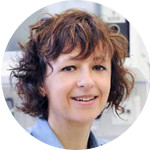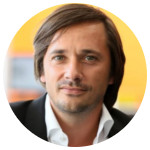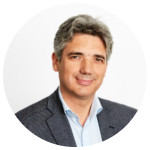The “Eureka” moment in the lab is far from the end of a successful story. Whether it’s the recipe for the next wonder therapy or a means of independence from fossil fuels, creating a company and making scientific discoveries to commercial reality is hard. We take a look at the best at translating research from the bench to the beside in Europe.
The term “technology transfer” conjures a mixture of hype, images of exciting new startups, and dread, following underwhelming statistics and lectures about needing more of it. As a whole, Europe has never been very good at translating science from academia to the market. It certainly lags behind the US, where academic hotspots like Boston and the Bay Area have created great Biotech clusters populated by academic-entrepreneurs superstars like George Church, Bob Langer, Greg Verdine, and Craig Venter to name a few.
However, the relatively slower pace in Europe doesn’t mean that there aren’t inspiring examples. Here are 10 academics in Life Sciences who directly helped shape European Biotech.
As usual, the list is no particular order. Our thanks to those who helped us put this list together.
 Emmanuelle Charpentier
Emmanuelle Charpentier
As a co-discoverer of CRISPR, the buzz around Emmanuelle Charpentier is hard to match. She is currently the director of the Max Planck Institute for Infection Biology, the recipient of several prizes for her work around the world and almost entirely focused on her scientific work. However, that doesn’t equal inexperience in technology transfer. She co-founded CRISPR Therapeutics, which has raised over €200M in private financing, with a former colleague, Rodger Novak, now CEO. Additionally, she co-founded ERS Genomics, which licenses her intellectual property in CRISPR systems in several areas and counts Evolva and Bayer as licensees.
 Gregoire Courtine
Gregoire Courtine
Gregoire Courtine is the lab director of the Center for Neuroprosthetics and Brain Mind Institute, at the Swiss Federal Institute of Technology (EPFL) in Lausanne. His research is focused on neuroprosthetics to help people recover from spinal cord injuries, and he explains its importance in his TED Talk. On the entrepreneurial side, Courtine is CSO of G-Therapeutics, a company based in Lausanne and Eindhoven (Netherlands) that is currently testing its implanted devices to help patients walk again in a the clinic.
 Mathias Uhlén
Mathias Uhlén
Mathias Uhlén teaches Biotechnology and Microbiology at two high-profile universities in Scandinavia, the Royal Institute of Technology (KTH) and the Technical University of Denmark (DTU). Over his long academic career, he published over 500 scientific articles and received many prizes. His achievements in business are not less impressive. He was a co-founder of Biotage, Affibody and Atlas Antibodies, and sat on the board of many Biotechs on the region, including Novozymes and SweTree Technologies.
 Dusko Ehrlich
Dusko Ehrlich
After beginning his education in Croatia, Dusko Ehrlich settled in France, where he is currently a Research Director at the French National Institute for Agricultural Research (INRA). Inside INRA, he pioneered research in microbial genetics and the microbiome and coordinated large projects like MetaHIT and MetaGenopolis. In 2012, he co-founded Enterome, a Microbiome-focused company now entering clinical trials, where he remains an advisor.
 Philipp Beckhove
Philipp Beckhove
Philipp Beckhove is the current director of the Regensburg Center of Interventional Immunology (RCI) at University of Regensburg, Germany. His work is focused on translational medicine, creating new cancer therapies from basic immunological research. In turn, this work was translated into the foundation of iOmx, an immuno-oncology Biotech with some hefty investors, where he is now Chairman of the Scientific Board.
 Jens Nielsen
Jens Nielsen
Jens Nielsen was a pioneer of Systems Biology in Europe. He is now a professor at Chalmers University of Technology in Gothenburg, Sweden, and CSO at the Novo Nordisk Foundation Center for Biosustainability in Denmark. He has published over 400 scientific papers and won several prizes, including the Novozymes Prize last year. He founded several SynBio companies, including Fluxome Sciences (now a part of Swiss Evolva), MycoTeQ (Denmark), MetaboGen (Sweden) and Biopetrolia (Sweden). Additionally, he is a scientific advisor to Genomatica (US) and Evolva.
 Mark Lowdell
Mark Lowdell
Focused on cell therapy, Mark Lowdell is the director of the Cellular Therapy at the Royal Free London NHS Foundation Trust and a professor of Cell and Tissue Therapy at the University College London. He was a co-founder of Achilles Therapeutics, based in London and developing personalized therapies for metastatic cancer. We interviewed Lowdell just last month, and he was quite vocal about how the relationship between academia and the Biotech industry is still very poor.
 Luigi Naldini
Luigi Naldini
During roughly 20 years of academic career, Luigi Naldini was a pioneer of lentiviral vectors for gene transfer, now a widely used tool in biomedical research and emerging therapeutics. He is the director of the San Raffaele Telethon Institute for Gene Therapy, which was highly involved in one of the first approved gene therapies. Beyond academia, he was one of the founders of Genenta, which struck a deal with Amgen last year, and is part of the scientific board of US-based Magenta Therapeutics.
 Luke O’Neill
Luke O’Neill
Luke O’Neill is a professor of Biochemistry at the Trinity College Dublin, where he conducts research on inflammation and immunity. His work has identified several targets for drugs and vaccines, and he has filed patents surrounding a number of key proteins in the innate immune cascade. In 2004, he co-founded Opsona Therapeutics, where he remains as director and CSO. Last year, he also co-founded Inflazome, which made a splashy debut with Novartis‘ investment.
 Greg Winter
Greg Winter
Considered the “grandfather of Biotechnology”, Greg Winter was a pioneer in the development of humanization techniques and consequently on the early history of monoclonal antibodies. Out of this research, he spun one of the most successful Biotechs ever, Cambridge Antibody Technology (CAT), acquired by AstraZeneca for £700 million in 2006. He is currently the Master of Trinity College and remains quite active in the entrepreneurial world, having co-founded Domantis (acquired by GSK) and, more recently, Bicycle Therapeutics.
There are really great examples of people who managed to translate their novel research into companies. For the veterans of technology transfer, some of these efforts yielded successful products. If other scientists across Europe follow suit, we will certainly have a more vibrant Biotech industry.
Do you know other top scientists successfully juggling academia and Biotech industry? Let us know in the comments.
Image by Kenneth Keifer/Shutterstock





